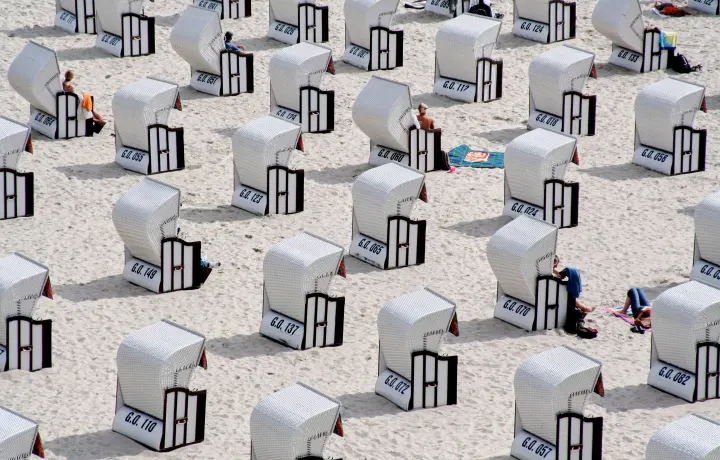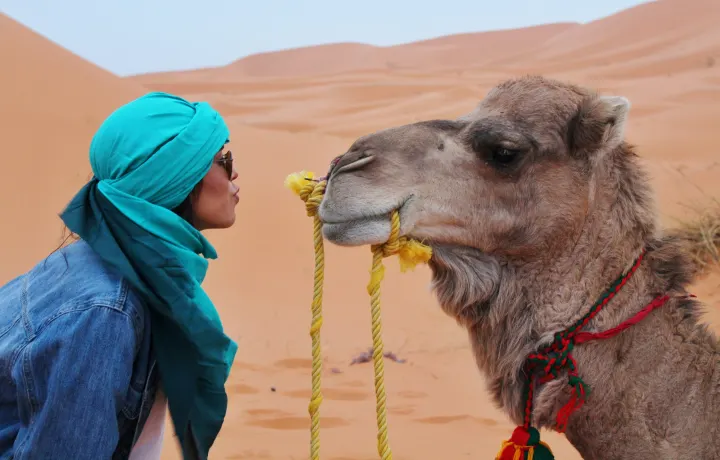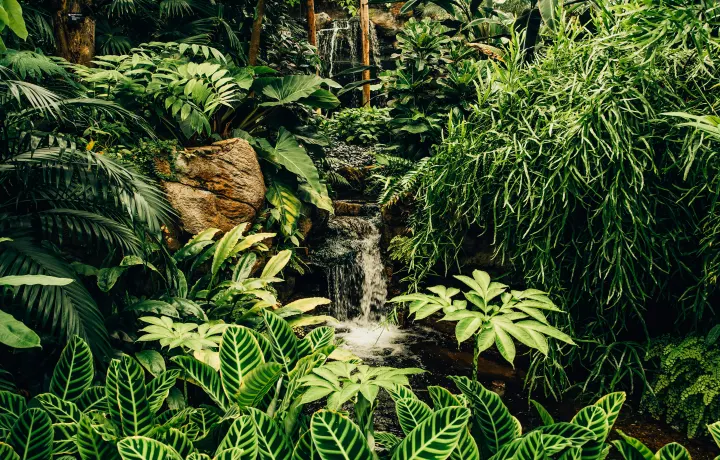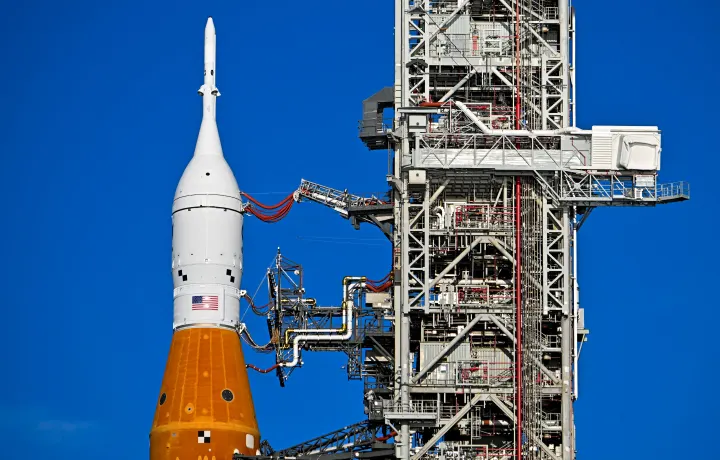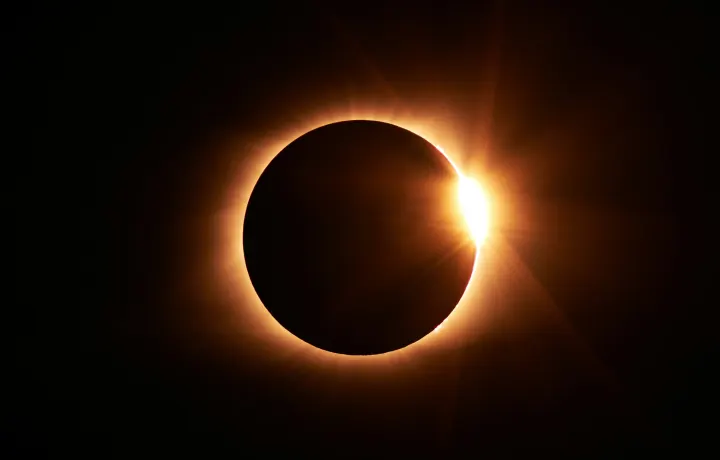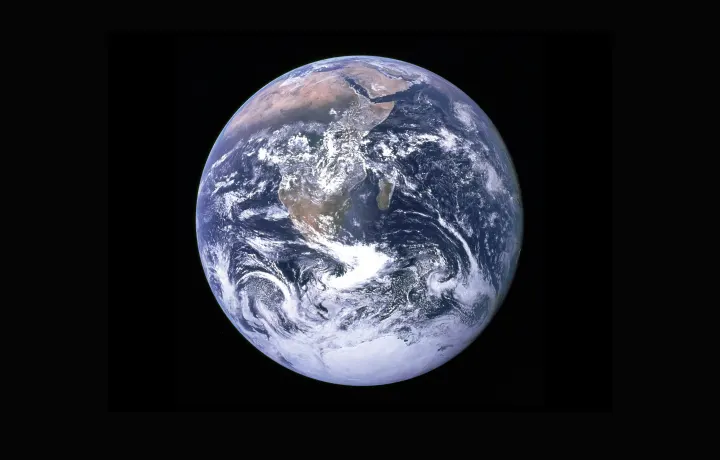Science
- Vox
The end of coral reefs as we know them
informed Summary
- The world is approaching a 1.5°C increase in global temperature relative to preindustrial times, a threshold that scientists have warned could lead to the death of 70 to 90 percent of coral reefs globally. At 2°C, more than 99 percent of coral reefs could die off.
Science5 min read - AP News
Europe is the fastest-warming continent, at nearly twice the average global rate
informed Summary
- Europe is the fastest-warming continent, with temperatures rising at roughly twice the global average, according to a joint report by the UN's World Meteorological Organization and the European Union’s climate agency, Copernicus.
Science2 min read - NPR
Startups want to geoengineer a cooler planet. With few rules, experts see big risks
informed Summary
- Make Sunsets, a company founded by Luke Iseman and Andrew Song, is experimenting with solar geoengineering by launching balloons filled with sulfur dioxide and helium into the stratosphere to reflect sunlight and counter global warming. The company claims that the three balloons they launched offset the warming of 175 gas-powered cars for a year.
Science14 min read - El Pais
Between laziness and germophobia: How often should you wash your hands?
informed Summary
- A survey by the New York Post in late 2023 revealed that almost half of Gen Z university students wash their hands 10 times or more daily, leading to discussions about what constitutes normal hygiene. Mireia Cantero, a Spanish public health professional, said that the situation is more important than the frequency of handwashing.
Science2 min read - CNN
Jane Goodall is world-famous for her work with chimpanzees. Now her focus has turned to a different crowd
informed Summary
- Jane Goodall, the renowned British primatologist, is empowering young people to create change within their communities through her program called “Roots & Shoots.”
Science3 min read - El Pais
An object from the sky smashed through my roof: Space debris is starting to be a problem
informed Summary
- A "grazing meteoroid" that crossed the sky of the Spanish Mediterranean coast on Good Friday highlighted the importance of controlling space debris. The European Space Agency reports that around 11,500 tons of objects are moving at high speed above Earth, including one million pieces of waste measuring between one and 10 centimeters, and 36,500 larger objects.
Science4 min read - CNN
Camels evolved from a cold-weather ancestor. We could learn from their remarkable transformation
informed Summary
- In this article, CNN's Bill Weir discusses the adaptability of camels and gentoo penguins to changing climates. Camels evolved over millions of years to survive in hot climates, while gentoo penguins are thriving in the Antarctic by moving farther south and changing their nesting habits.
Science7 min read - CNN
Highlights from the total solar eclipse
informed Summary
- The total solar eclipse that swept across Mexico, the U.S. and Canada has completed its journey over continental North America. The celestial spectacle was last seen along the Atlantic coast of Newfoundland, Canada, and first experienced in Mazatlan, Mexico.
Science4 min read - Vox
Are rainforests doomed? Not necessarily.
informed Summary
- The planet lost 9.2 million acres of its tropical forest in 2023, equivalent to about 10 soccer fields of forest per minute for an entire year, according to data from the World Resources Institute and the University of Maryland. This loss has contributed to the extinction crisis and climate change.
Science5 min read - Sky News
Moon to get its own time zone created by NASA - but clocks work differently there
informed Summary
- The White House has directed NASA to develop a unified lunar time standard, known as Coordinated Lunar Time (LTC), by the end of 2026. This will provide a time-keeping benchmark for lunar spacecraft and satellites.
Science2 min read - TIME
Why China could beat the U.S. back to the Moon
informed Summary
- The U.S. and China are both planning to land astronauts on the Moon by 2030, with the U.S. aiming for 2026 or 2027 and China before 2030. The U.S. plans to land near the Shackleton Crater at the south lunar pole, where ice deposits can be harvested for water, oxygen and rocket fuel.
Science7 min read - NPR
Once lost to science, these 'uncharismatic' animals are having their moment
informed Summary
- The rate at which animals species are becoming extinct is accelerating globally, with many considered "lost" after no trace of them is found for 10 years. These species are often threatened by human impacts such as climate change, pollution and the destruction of their natural habitat.
Science5 min read - NPR
Your muscles keep time too. How circadian rhythms affect your workout and your health
informed Summary
- Circadian rhythms, the patterns in our physiology and behavior that fluctuate over a 24-hour cycle, play a significant role in determining the best time to exercise. While there is no scientific consensus, recent research suggests that exercise can help keep the body's circadian rhythms in sync, with morning or early afternoon workouts pushing rhythms towards an earlier schedule.
Science7 min read - CNN
Polar ice is melting and changing Earth’s rotation. It’s messing with time itself
informed Summary
- A new study suggests that melting polar ice, influenced by human activity, is altering the Earth's rotation and changing time itself. This is because the hours and minutes that dictate our days are determined by Earth's rotation, which can change slightly depending on what's happening on the surface and in the planet's molten core.
Science4 min read - El Pais
Why scientists are making transparent wood
informed Summary
- Transparent wood, created by bleaching away the pigments in plant cells, could soon be used in super-strong screens for smartphones, light fixtures, and structural features like color-changing windows. The material is stronger than plastic and glass, and retains its wood grain, giving it a natural aesthetic.
Science6 min read - CNN
Colorful paintings of daily life uncovered in 4,300-year-old Egyptian tomb
informed Summary
- A tomb dating back more than 4,300 years has been discovered in the pyramid necropolis of Dahshur, south of Cairo, during an Egyptian-German archaeological mission. The tomb, known as a mastaba, features colorful paintings of daily life in ancient Egypt.
Science2 min read - Vox
Kate Middleton’s cancer diagnosis is part of a frightening global trend
informed Summary
- Catherine, Princess of Wales -- also known as Kate Middleton -- announced in a video message that she was diagnosed with cancer after doctors discovered evidence of the disease during abdominal surgery earlier this year. The type and stage of the cancer have not been disclosed by Kensington Palace.
Science3 min read - CBS
The first day of spring in 2024 is a day earlier than typical years. Here's why
informed Summary
- Spring is starting earlier than usual in 2024, with the vernal equinox marking the first day of spring on March 19, according to the U.S. National Weather Service. This is due to 2024 being a leap year.
Science3 min read - CNBC
United Arab Emirates is using cloud seeding tech to make it rain
informed Summary
- The Middle East is facing severe water scarcity due to rising global temperatures and climate change. The UAE, for example, averages less than 200 millimeters of rainfall a year and temperatures can reach as high as 50 degrees Celsius during the summer.
Science3 min read - Vox
Seventeen astounding scientific mysteries that researchers can’t yet solve
informed Summary
- Vox's Unexplainable podcast explores unanswered scientific questions and the process of scientific discovery. The podcast emphasizes that scientific knowledge is always evolving and that the process of science involves narrowing the gap between our questions and our ability to answer them.
Science14 min read

